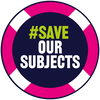06.07.23
About Parentkind: As the voice of parents in children's education, Parentkind regularly gauges parental opinion about how schools perform, what children are taught and their satisfaction with how the education system works. Each year we survey thousands of parents, making sure they’re demographically balanced and diverse, because we want to know how things are changing and how parental opinion shifts over time. We’ll share 2023's survey, conducted by YouGov, in the coming months. Below we set out our general findings of parents’ attitudes towards the education system and, more specifically, school accountability measures and reflect on the importance of the Save Our Subjects campaign.
About Parentkind: As the voice of parents in children's education, Parentkind regularly gauges parental opinion about how schools perform, what children are taught and their satisfaction with how the education system works. Each year we survey thousands of parents, making sure they’re demographically balanced and diverse, because we want to know how things are changing and how parental opinion shifts over time. We’ll share 2023's survey, conducted by YouGov, in the coming months. Below we set out our general findings of parents’ attitudes towards the education system and, more specifically, school accountability measures and reflect on the importance of the Save Our Subjects campaign.
In the ever-changing landscape of education and with the huge changes brought about by world events such as the pandemic, some things remain the same. Parents still tell us that they think a good education for their child goes beyond exam results. Their aspiration is that their offspring thrives at school whilst receiving the finest education. Parents know that this equips them to thrive and be adaptable within the complexities of modern life, forging their path toward the job market of tomorrow. As a key stakeholder in children's learning, most parents discuss their child's progress in depth, both with the child and their teachers. Engaged parents acquire a rounded knowledge of what works well in the education system, and where there is room for improvement.
|
Parents tend to approve of their child learning a broad, balanced curriculum through a range of subjects, and they tend not to support efforts to restrict the choice of subjects. Nor do they like education to 'teach to the test', which they recognise leads students to a shallow understanding of a subject. In 2022, almost two thirds (63%) of parents agreed that there is too much focus on academic rather than vocational qualifications in today's education system, where only 9% disagreed. At the same time, there has been an overall decreasing level of satisfaction from parents that the school teaches a curriculum that meets their child's needs, which has dropped from 79% in 2020 to 75% in 2022. A slight dip, but seemingly a downward trend that is worth keeping an eye on. In 2021, we asked what parents considered to be important aspects of the curriculum, and nearly four in five agreed that it should include subjects that go beyond traditional academic subjects – things like drama and music. The most popular opinion was that the curriculum should help to develop skills that are useful outside of school, such as critical thinking, problem-solving, teamwork and working to a deadline. |
When we have drilled down into what parents want from the curriculum through research polls, we have found that four out of five parents feel it is 'very important' for their child’s school to provide access to a full arts and technology curriculum (such as art, design, drama and music) up to and including GCSE level. More than half say they have noticed arts subjects being treated differently from other subjects, whether that be through teaching them on a rotational basis or through more limited options at GCSE level. Just under a quarter of parents attach some importance to accountability measures such as the EBacc and Progress 8 when choosing a school for their child, but just as many said they don't. Responding to the same question, just over a quarter of parents said they did not know what EBacc or Progress 8 are. This demonstrates an absence of overwhelming parental appreciation for such accountability measures when set against what they consider to be the best criteria for judging what constitutes a good education.
The research also demonstrates that while parents may not know exactly what is meant by accountability measures such as Attainment 8 and Progress 8, they will certainly recognise some of the consequences of these measures on the education that their child receives. Similarly, polling at the time that Ofsted launched its new regulatory framework showed that parents value the inspectorate in principle, but they were less sure that the inspection process really told them everything they wanted to know about their child's school. Polling on examinations has shown a parental willingness to consider assessment reform, and in recent years there has been a pattern of parents lacking confidence that the system benefits all pupils or helps their child to leave school with the skills that they need to thrive.
School accountability is an important issue, and one that, rightly, has developed into a national conversation. Parentkind supports the Save Our Subjects campaign because of what parents have told us. The campaign seeks to review the impact of accountability measures such as the EBacc and Progress 8 on arts and technology subjects, as well as hoping to reform Progress 8 to afford pupils more choice in selecting their GCSEs. However well-meaning, it is essential to keep parents on board with any changes and to ask their opinions of exactly how the quality of education a school delivers should be measured, whether or not that comes down to expanding Attainment 8 and Progress 8 to include arts subjects. From acting as a child's primary educator, supporting learning at home, giving encouragement during assessments and being the strongest influence in instilling values and developing character, the role of parents in children's education and development runs broad and deep. They have good instincts and insights about where the education their child receives is effective, and where it could improve. A new accountability system is one that will work best if it is clearly understood by parents, and has the voices and views of parents at its heart.
The research also demonstrates that while parents may not know exactly what is meant by accountability measures such as Attainment 8 and Progress 8, they will certainly recognise some of the consequences of these measures on the education that their child receives. Similarly, polling at the time that Ofsted launched its new regulatory framework showed that parents value the inspectorate in principle, but they were less sure that the inspection process really told them everything they wanted to know about their child's school. Polling on examinations has shown a parental willingness to consider assessment reform, and in recent years there has been a pattern of parents lacking confidence that the system benefits all pupils or helps their child to leave school with the skills that they need to thrive.
School accountability is an important issue, and one that, rightly, has developed into a national conversation. Parentkind supports the Save Our Subjects campaign because of what parents have told us. The campaign seeks to review the impact of accountability measures such as the EBacc and Progress 8 on arts and technology subjects, as well as hoping to reform Progress 8 to afford pupils more choice in selecting their GCSEs. However well-meaning, it is essential to keep parents on board with any changes and to ask their opinions of exactly how the quality of education a school delivers should be measured, whether or not that comes down to expanding Attainment 8 and Progress 8 to include arts subjects. From acting as a child's primary educator, supporting learning at home, giving encouragement during assessments and being the strongest influence in instilling values and developing character, the role of parents in children's education and development runs broad and deep. They have good instincts and insights about where the education their child receives is effective, and where it could improve. A new accountability system is one that will work best if it is clearly understood by parents, and has the voices and views of parents at its heart.



